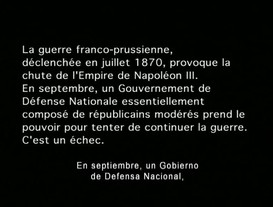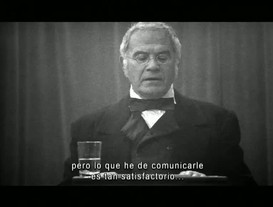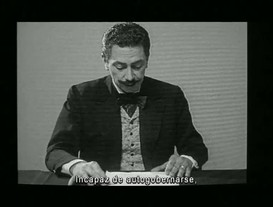United Kingdom (Great Britain)
Peter Watkins (Norbiton, Regne Unit, 1935) és un director de cine anglés. Actiu des dels anys cinquanta fins a final dels noranta al cinema i a la televisió, Watkins ha mostrat una preocupació constant per repensar el paper del públic i per alliberar-lo de les estructures autoritàries d'allò que anomena «monoforma», és a dir, el suprasistema que els mitjans formen al voltant de la realitat social. Aquesta preocupació s'ha concretat en recreacions de fets històrics protagonitzades per actors no professionals, en transposicions de l'estil visual del periodisme televisiu que descobreixen el caràcter mític de la seva suposada objectivitat, o en ficcions futuristes –recerques estilístiques adreçades sempre a suscitar la implicació del públic en assumptes crucials per al futur de la humanitat, com la guerra, la llibertat de consciència o la persistència de les desigualtats socials–. Així, la preocupació pedagògica és central en la seva trajectòria, tant en projectes pensats específicament per al seu ús a les aules –com els episodis de The Journey (1983-1985)– com en la concepció del procés de rodatge mateix com a experiència d'aprenentatge col·lectiu –per exemple, en el cas de The Freethinker (1992-1994)– o en la seva lluita per convertir les projeccions de les seves pel·lícules en ocasions per al debat públic. En última instància, Peter Watkins vol subvertir el paper del cinema i la televisió com a garants de l'ordre establert, convertint-los en instruments de revolta.
http://pwatkins.mnsi.net/

